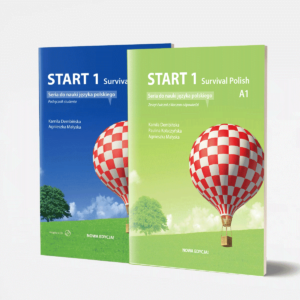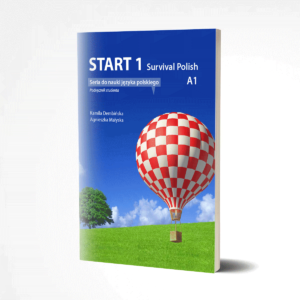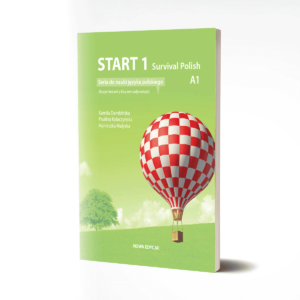Polish is not one of the easiest languages, on the contrary, it is considered quite difficult to learn and to remember the correctness of certain formulations. On the official list, it is already in second place, just after Chinese, in terms of the aspect of difficulty, and not only foreigners learning Polish, but also native speakers have problems. According to UNESCO statistics, as many as 77% of Poles have trouble understanding a readable Polish text, and only 2% are linguistically proficient. Despite this, Polish is not impossible to learn, and the ease of acquiring new knowledge in the area of Polish depends largely on the way the course is conducted. If you’re interested in learning Polish, be sure to check out what you’ll be up against and what mistakes are most often made even by Poles who have spoken the language since birth.
Examples of language errors
Linguistic error, which is an unintentional departure from the rules and prevailing norms of the language system. These rules are usually sanctioned by the linguistic sense of communities, which are composed of users of the national language or by linguistic custom. Any rules on the correctness of word writing can be found in language guides or dictionaries of correct Polish. Linguistic errors include various deviations, for example, those related to language and linguistics, violating pragmatic rules, deviating from linguistic prescriptions, making spelling or punctuation errors. Linguistic errors can be both written and verbal, when a speaker of Polish does not follow the norms, so that the spoken message is distorted and the listener misperceives the message.
Spelling errors
To begin with, it is worth noting what spelling errors are. This is an irregularity in the writing of a word that is inconsistent with current norms. The Council of the Polish Language recognizes the division of spelling errors into gross and secondary, and the basis for determining the type of error is the orthographic rules. Many people have trouble just remembering the rules, of which there are quite a few, which is why so many speakers of Polish often make similar mistakes. Spelling errors are among the most common mistakes made by Poles, and they often involve the same words! Most often, they concern the conjunctive or singular spelling of word groups (which you will read about in the paragraph below) and the use of letters and binary characters u/ó, ż/rz, h/ch.
- The basic rules include the spelling of rz in words that are exchanged for r, for example, in the word bicycle there is an r, so the change will be with rz, i.e. cyclist. Another rule about the use of rz is the use of a two-sign after the consonants b, p, d, t, g, k, ch, j, w, e.g. bank, birch, splinter, shank, perch, bush, beetle, look. Note that there are a few exceptions like boxwood, shape, better, newer, bee. Also, with adjectives ending in -szy, -ejszy, it will look different (best, newest, nicer).
- ¿ is used when in the word we want to change, there are such eliters as and h, z, ź, s. For example: book – book, ribbon – ribbon. ¿ is also written after the letters l, ł, r, n.
- The rule for the use of u is to use it in the endings of nouns, such as gift, toddler, chain, mommy. We also write it in verbs that end in -uj, -ujesz.
- Ó is written in words ending in -ów, e.g. Tarnów, Julian, forests, boys, as well as those ending in -ówka, i.e.: puzzle, postcard. Also worth remembering is the word eighth, eighth and all its variations, the beginning of which always begins with the letter ó.
- Ch is used when there is an exchange for a two-character word: sz. For example, fly-fly, a little-trouble.
Errors related to uppercase or lowercase spelling
Another rule of thumb is the rule for capitalization and lowercase letters. It may seem that many people may have a problem with this, but it is enough to remember a few norms governing the correct spelling.
- We capitalize: first and last names, personal names, nicknames, names of inhabitants of geographical areas, names of dynasties, names of holidays and public holidays, titles of magazines and movies, names of awards, names of streets and parks, names of offices and authorities, names of continents and many, many others.
In order to accurately remember and assimilate norms and rules, it is advisable to use Polish language lessons, in which appropriate exercises and learning by solving tasks will facilitate in the assimilable learning of all kinds of rules.
Errors related to conjunctive or disjunctive spelling
Some of the more common mistakes are violations of the rules of conjunctive and separable spelling. The best example is the rule that the particle is not written together with verb nouns, such as: acting, thinking. The correct spelling should look like: not acting, not thinking, while many people write the two words separately. There is a group of words whose spelling brings the same difficulties year after year. Not only foreigners, but also native speakers of Polish have a big problem remembering the correct notation of, among other things, these words and expressions: certainly, really, for now, in general, every day, I don’t know, at least, besides, opposite, back. Many people make various combinations, incorrectly separating events or incorrectly combining some of them, such as at all. This is one of many spelling mistakes.
Punctuation errors
Punctuation error, which is the incorrect use or omission of one of the punctuation marks: period, comma, semicolon, colon, parenthesis, hyphen, quotation mark, exclamation point, question mark or period. The biggest difficulty is putting the comma in the right place, and its use depends on many aspects. However, a big help is to read the text silently and see where we stop to split a sentence. It is largely a matter of practice and practice.
Errors in the Polish language – how to avoid them?
Errors in Polish happen on a daily basis not only to foreigners, but also to native speakers. To avoid them, the most important thing is practice, i.e. frequent communication just like in foreign languages. The more often we use the language, the better we understand the norms and rules that apply. However, it can be quite difficult for foreigners not to learn with mistakes. For this reason, Polish language courses are becoming increasingly popular. Our company offers top quality learning by professionals with several years of experience and a huge dose of knowledge. If you want to learn the Polish language in a pleasant and understandable way, we warmly encourage you to enroll in our course and join the ranks of satisfied customers.





